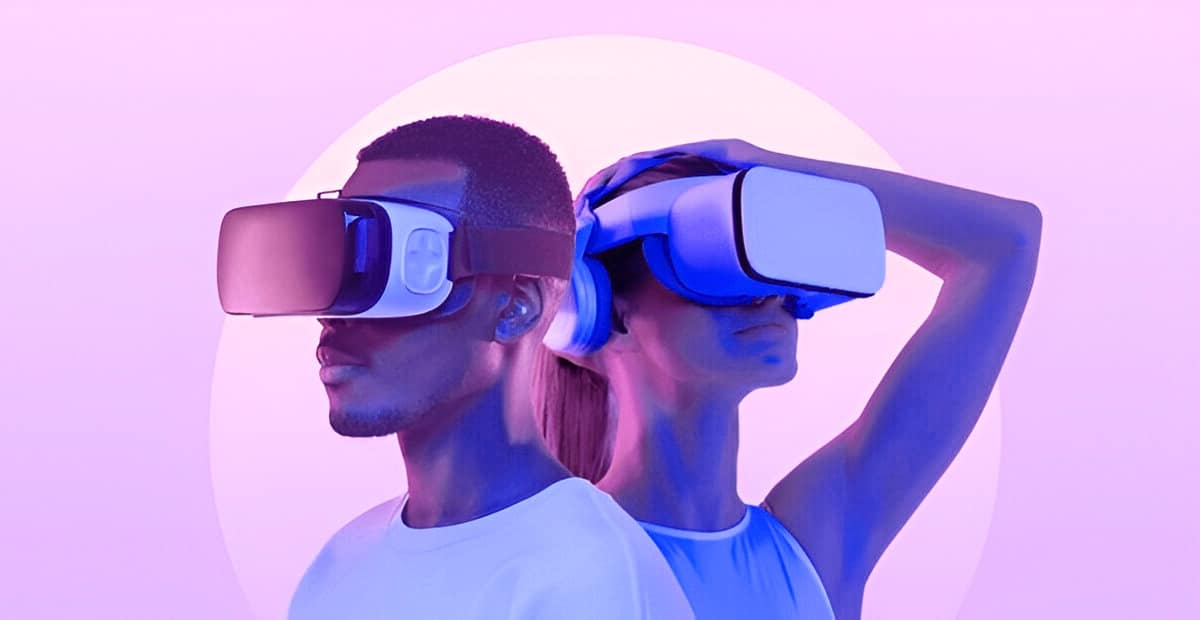
Imagine living in a world where you can work, play, shop, and even attend school without ever leaving your home. This world is called the metaverse, and it is quickly becoming part of our everyday lives. Big companies like Meta, Microsoft, and Google are investing billions of dollars to make this new virtual world a reality.
But what does the future of metaverse technology look like? Will it change the way we live forever? This article will cover the future’s exciting developments, the challenges we must face, and what it all means for you and the world.
Table of Contents
Understanding the Metaverse
Before we dive into the future, it’s important to understand what the metaverse really is.
The metaverse is a shared digital world that people can enter using the internet. You can create your own avatar, meet other people, explore different places, and even build your own spaces. It’s like a video game, but much bigger and more connected to real life.
The idea of the metaverse started many years ago, first appearing in the 1992 novel Snow Crash. Today, platforms like Roblox, Decentraland, and The Sandbox are early versions of the metaverse, where people already interact, play games, and even buy virtual real estate.
Technological Advancements Driving the Metaverse
Many new technologies are helping the metaverse grow and become more real. Here are some of the most important technologies:
AR and VR Innovations
Augmented Reality (AR) and Virtual Reality (VR) are essential for creating the metaverse. These technologies allow users to feel like they are inside a different world. Companies like Meta and Apple are launching better VR headsets that are lighter, cheaper, and more powerful.
The newest devices can show incredible graphics and allow users to move freely without getting tangled in wires. Haptic suits, which let users “feel” virtual touches, are also becoming more common.
Artificial Intelligence Integration
Artificial intelligence (AI) serves as the “brain” that operates in the background. AI helps create smarter characters in virtual worlds that react naturally to what users do. AI also helps customize experiences by learning what each person likes.
For example, AI can create virtual shopping assistants or virtual tour guides that are friendly, helpful, and always learning.
3D Rendering Techniques
3D graphics are key to making the metaverse feel real. New methods like Gaussian Splatting allow for stunningly realistic environments without needing expensive computers.
In the future, anyone with an internet connection might be able to visit a beautiful, lifelike virtual world without needing a high-end gaming PC.
Economic and Social Implications
The future of the metaverse isn’t just about playing games — it’s going to have a big impact on our economy and society too.
Market Projections
Experts believe the metaverse market could be worth $800 billion by 2025. Companies are already selling digital clothes, virtual real estate, and even virtual concerts.
Brands like Nike, Gucci, and Coca-Cola are launching products that exist only in virtual worlds.
Job Creation and New Industries
The metaverse is creating new jobs that didn’t exist before, such as
-
Virtual Architects: People who design buildings and parks in the metaverse.
-
Metaverse Event Planners: Organizers of concerts, weddings, and meetings in virtual spaces.
-
Avatar Designers: Artists who create digital outfits and skins for characters.
In the future, there will be even more new careers we haven’t even imagined yet.
Social Interactions
Social life will change dramatically. Instead of traveling across town, you might just put on a headset and join friends for a birthday party in a beautiful virtual world.
Education will also change — students can take virtual field trips to ancient Egypt or outer space. Office work might move into virtual spaces, too, allowing people to collaborate from anywhere in the world.
Challenges and Ethical Considerations
While the future looks exciting, there are some big challenges we need to solve.
Data Privacy and Security
The metaverse will collect a lot of personal data — where you go, who you meet, and what you buy. Keeping this information safe from hackers and respecting users’ privacy will be a giant task.
Strong security systems and clear rules will be necessary to protect users.
Platform Monopolies
Some fear that a few big companies will control the entire metaverse. Such an arrangement could limit competition and creativity.
Open standards, like those built on blockchain technology, could help create a more fair and open metaverse where no single company has total control.
Accessibility and Inclusivity
High-quality VR headsets and fast internet are still expensive. If only rich people can afford to join the metaverse, it won’t be fair.
Developers must work on making the technology cheaper and easier to use so everyone, no matter their background, can participate.
The Road Ahead: Predictions and Possibilities
What can we expect to see in the future?
Short-Term Developments (Next 5 Years)
-
More realistic avatars: Avatars will start to look more like real people, moving and speaking naturally.
-
Better virtual workplaces: Companies will host meetings and build team spirit inside virtual offices.
-
Virtual shopping: Buying clothes, shoes, and even cars in the metaverse will feel just like shopping in real life.
Long-Term Vision (Next 20-30 Years)
-
Digital Twins: Entire cities could have digital copies in the metaverse, helping with city planning and emergencies.
-
Neural Interfaces: Instead of using controllers, you might one day control your avatar just by thinking.
-
Complete Virtual Economies: Entire economies could exist in the metaverse, with people making a living entirely online.
Conclusion
The future of metaverse technology is full of possibilities. With better AR/VR devices, smarter AI, and more realistic virtual worlds, life as we know it is going to change. But to make the metaverse a safe and fair place for everyone, we must also address big issues like privacy, accessibility, and fairness.
The future of the metaverse is exciting — and it’s happening faster than most people realize. Whether you’re a gamer, a student, a worker, or a business owner, the metaverse will touch your life in ways you may not have imagined.






